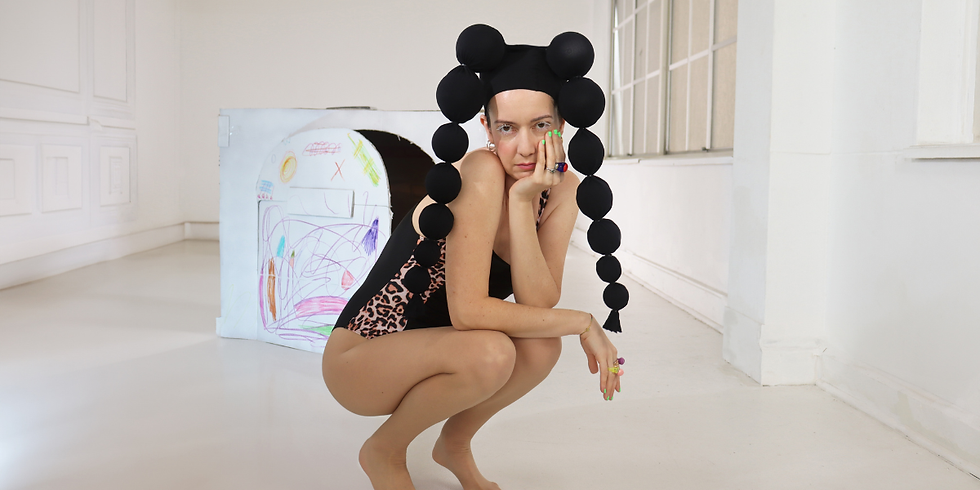Bleak Expectations - Wanneroo Repertory
- Kate O'Sullivan
- Sep 17, 2024
- 4 min read
Updated: Sep 25, 2024
Reviewed by Paul Treasure
While new Australian works are fairly common on our stages, it is rare to be able to see one of our own Community Theatres stage a West End play while it is still brand new. Mark Evans’ Bleak Expectations, the latest offering from Limelight Theatre, is a very little over two years old, having
closed on the West End in August last year. This stage version is based on his successful radio series, which starred, among others, Tom Allen and Anthony Head. The show is a Goonish parody of Victorian Literature in general, and the works of Charles Dickens in particular. It is witty, fast-paced, madcap, and surreal. In the right hands, the script has the potential to be a side-splitting anarchic romp.
The play takes place in quite a number of different settings, and this production has made the wise choice to put it all on a single set. And what a stunning set it is. A large English drawing room, painted to look like sumptuous green Victorian wallpaper. The room is large and open with only a couple of pieces of furniture, all of which become essential to the action at some point. One window, high up on the upstage wall, is beautifully backlit in some scenes, and a small landing or balcony provides another acting space. Quietly dominating the entire set is a massive pile of books in one of the back corners, this feature is a continual reminder that we are in that often fantastical world of Dickens and his cohorts. From a pure design standpoint, this is one of the most impressive sets I have seen in quite a while. It is a shame that there is no specific design credit for this absolute work of art in the programme.
The lighting design, by Peter Giles, enhanced the set even further, with great changes in mood and location well presented. The use of moving spotlights to pick out the narrator during his speeches was very clever and effective, although they often seemed to be poorly focused, and actor and spotlight were often out of step with each other. A good attempt was made at period accuracy with the costumes, and they were all matched to their characters extremely well.
The cast, who seemed to be enjoying themselves immensely, threw themselves into the craziness they were asked to embody. Jack Riches, as the young Pip Bin gave us a very energetic portrayal, literally leaping over the furniture at times. His character plays into the Pip/David Copperfield/Nicholas Nickleby trope, and he manages to inject the requisite amount of joyful naiveté into the proceedings, with plucky optimism even at the darkest of times. As his persistent and frustrated love interest Ripely Fecund, Mary Del Casale was simply delightful, playing the confusion and disappointment at her character's frequently failed attempts to garner Pip’s attention as more than just an unofficial sister. Tomas Kinshela as Harry Biscuit, was delightful, especially in his thwarted attempts to share his affection for the lead. In the largely supporting role of Pippa Bin, Natalie Wiles guided the rest of the cast with her confident presence. Relative newcomer Gareth Bishop, as the ironically titled Mr Benevolent, gave a lovely performance that left us hoping to see him in many future shows. It would have been nice to see what he could have done had he been guided into playing the villain of the piece as moustache-twirlingly evil. Given one of the more interesting challenges of the show, Jason Pearce excelled at playing The Hardthrashers, various members of the same family who kept appearing with ridiculous relentlessness. He managed to make each of the characters unique and yet kept the obvious familial characteristics running through all of them.
Ultimately, though, despite the obvious talent onstage and the outstanding efforts of everyone involved, the show falls flat. An essential part of any successful parody is an intimate understanding of the target of that parody, something that unfortunately seemed to be lacking in the overall vision of this show. Dickens wrote his characters large, they are often archetypes with touches of humanity rather than real people. Even the smallest character in Dickens is written in big, bold strokes. As a parody of him and his contemporaries, the performances needed to be even bigger. It is a very high bar to reach, committing one hundred and ten percent to believing in the ridiculousness onstage while keeping one eye firmly winking at the audience. There were times in the show when we got glimpses that the cast had the potential to achieve this level of performance, had they been guided by a much firmer hand. Comedy of this particular type requires an almost clinical understanding of timing and a razor-sharp delivery, something that was sorely lacking from this production, and without which the many jokes failed to land, and punchlines were fumbled or missed their mark entirely. The show felt inadequately rehearsed, with not enough time or effort being put into polishing the actors' performances and stretching them to get the precision that this genre requires.
This is a visually beautiful production of a very funny play, with some very fine performances, but one with many missed opportunities preventing it from reaching its full potential.

Reviewer Note: Tickets for this review were provided by the theatre company.






The photo that you have used is a rehearsal pic, taken before the set was finished and before before the costumes were organised. I guess reviewers should do their homework. Good review though.
The writer’s name is actually Mark Evans